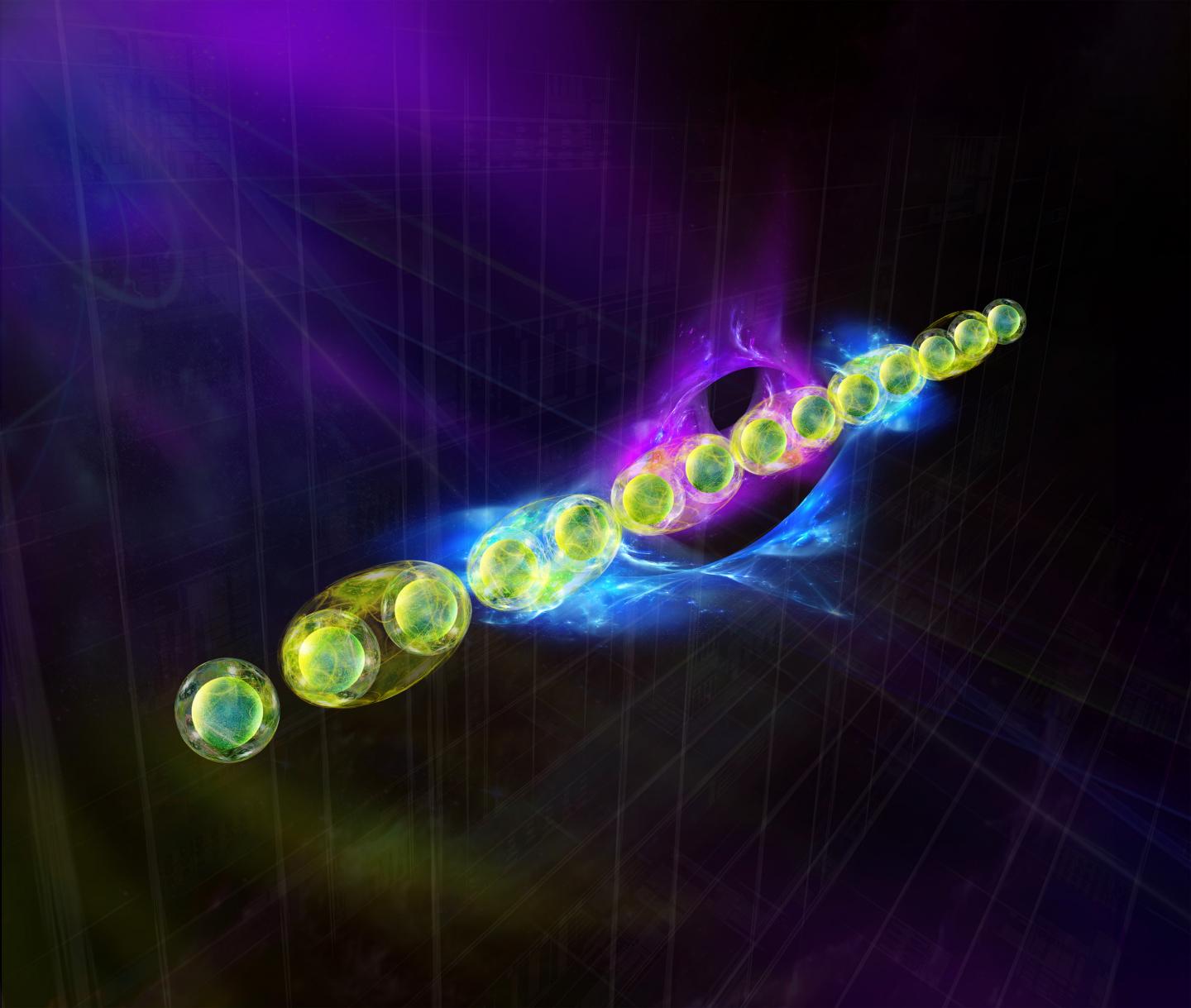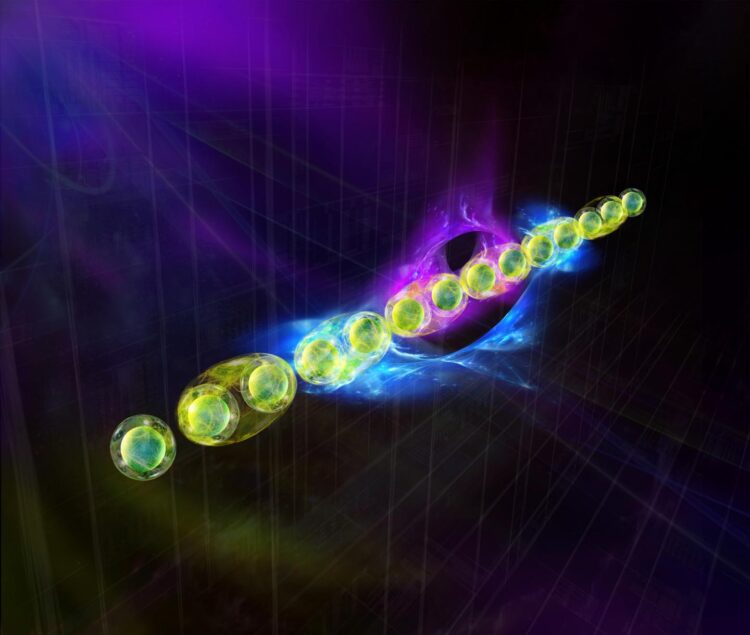Method can be directly applied in existing experimental platforms

Credit: IQOQI Innsbruck/Harald Ritsch
Nowadays, modern quantum simulators offer a wide range of possibilities to prepare and investigate complex quantum states. They are realized with ultracold atoms in optical lattices, Rydberg atoms, trapped ions or superconducting quantum bits. A particularly fascinating class of quantum states are topological states of matter. David Thouless, Duncan Haldane and Michael Kosterlitz were awarded the Nobel Prize in Physics in 2016 for their theoretical discovery. These states of matter are characterized by nonlocal quantum correlations and are particularly robust against local distortions that inevitably occur in experiments. “Identifying and characterizing such topological phases in experiments is a great challenge,” say Benoît Vermersch, Jinlong Yu and Andreas Elben from the Center for Quantum Physics at the University of Innsbruck and the Institute for Quantum Optics and Quantum Information of the Austrian Academy of Sciences. “Topological phases cannot be identified by local measurements because of their special properties. We are therefore developing new measurement protocols that will enable experimental physicists to characterize these states in the laboratory”. In recent years this has already been achieved for non-interacting systems. However, for interacting systems, which in the future could also be used as topological quantum computers, this has not been possible so far.
With random measurements to a definite result
In Science Advances, the physicists of Peter Zoller’s research group now propose measurement protocols that enable the measurement of so-called topological invariants. These mathematical expressions describe common properties of topological spaces and make it possible to fully identify interacting topological states with global symmetry in one-dimensional, bosonic systems. “The idea of our method is to first prepare such a topological state in a quantum simulator. Now so-called random measurements are performed, and topological invariants are extracted from statistical correlations of these random measurements,” explains Andreas Elben. The specific feature of this method is that although the topological invariants are highly complex, non-local correlation functions, they can still be extracted from statistical correlations of simple, local random measurements. As with a method recently presented by the research group for comparing quantum states in computers or simulators, such random measurements are possible in experiments today. “Our protocols for measuring the topological invariants can therefore be directly applied in the existing experimental platforms,” says Benoît Vermersch.
###
The measurement method was developed by Andreas Elben, Jinlong Yu, Peter Zoller and Benoit Vermersch in Innsbruck in close cooperation with Guanyu Zhu from the Joint Quantum Institute, Maryland, USA and IBM Research, Mohammad Hafezi (JQI Maryland) and Frank Pollmann from the Technical University of Munich. The research was financially supported by the European Research Council and the EU flagship for quantum technologies, among others.
Publication: Many-body topological invariants from randomized measurements in synthetic quantum matter. Andreas Elben, Jinlong Yu, Guanyu Zhu, Mohammad Hafezi, Frank Pollmann, Peter Zoller, Benoît Vermersch. Sci. Adv. 2020; 6:eaaz3666 DOI:10.1126/sciadv.aaz3666
Media Contact
Andreas Elben
[email protected]
Related Journal Article
http://dx.





